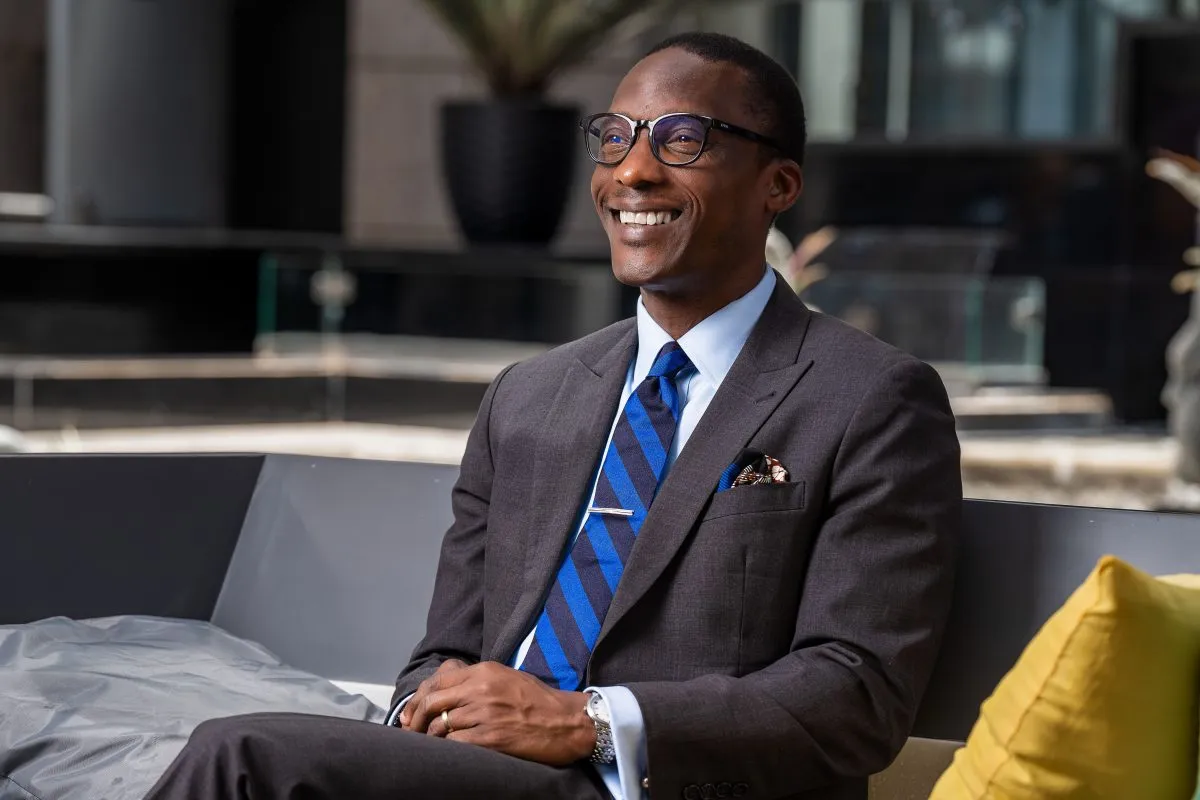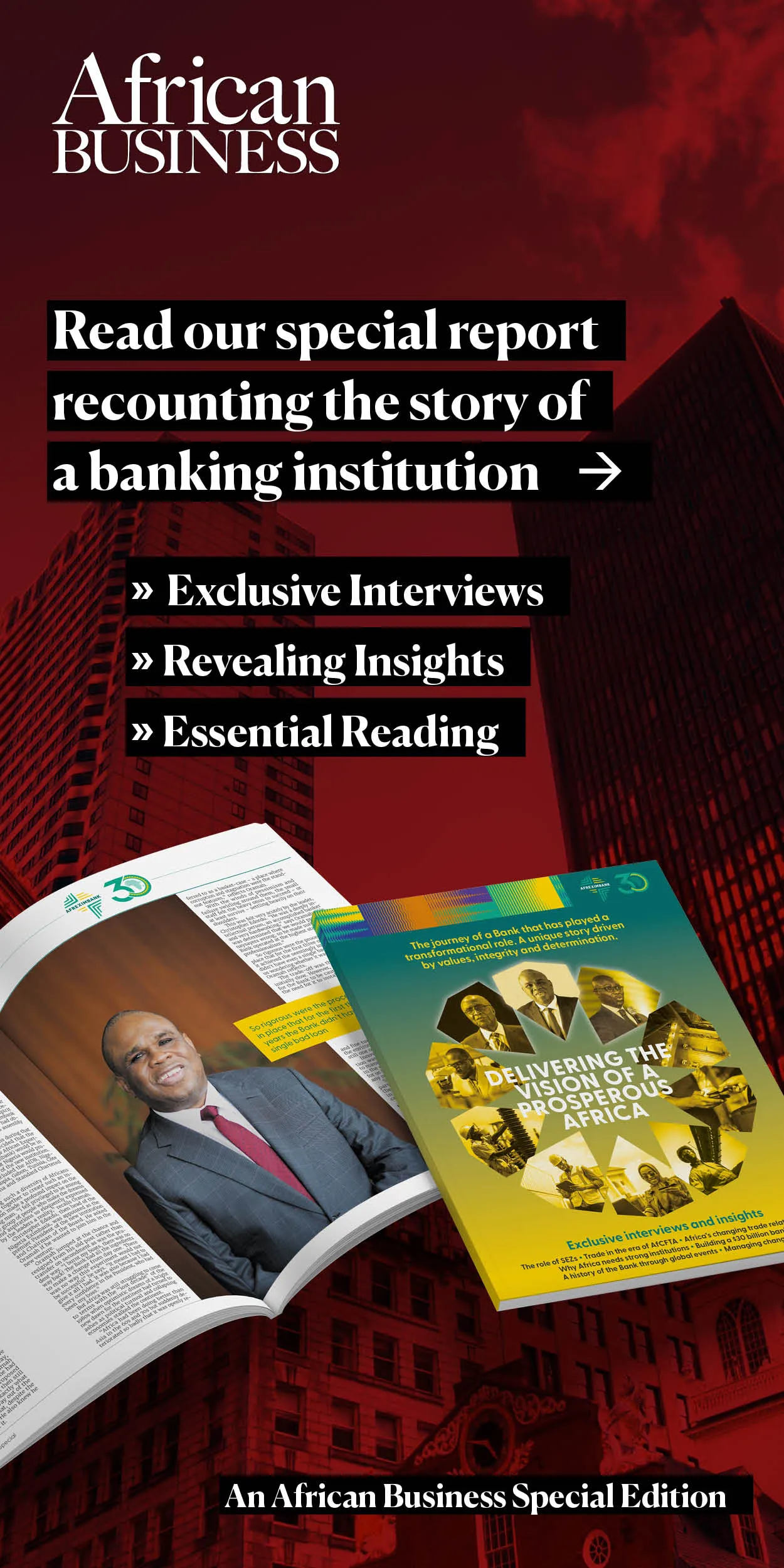This article was produced with the support of Afreximbank
Looking back over the President’s time at the Bank, how do you think his view of people and their role in shaping the institution has evolved?
There’s been a remarkable evolution in how people are seen within the Bank’s ecosystem. When Professor Benedict Oramah assumed leadership in 2015, we had approximately 174 staff and contractors. By March 2025, that number had risen to over 500. That growth wasn’t simply about headcount – it was a strategic effort to align human resources with the Bank’s expanding mandate.
Under his leadership, there’s been a deep recognition that people are the true drivers of institutional success. Two strategic plans – Plan 5 and Plan 6 – have been delivered during his tenure, both ambitious in scope. Achieving their goals required not only increased numbers but enhanced quality of staff.
To that end, we revamped the recruitment process. A multistage interview system was introduced, ensuring that shortlisted candidates are assessed not only for technical competence but also for alignment with the Bank’s cultural values, strategic vision, and commitment to Africa. This structured approach has helped us bring in top-tier talent.
Moreover, Benedict Oramah placed a strong emphasis on representation. As new African member states joined and Caribbean countries became participating states, recruitment widened to include talent from across the diaspora, including multi-generational Africans abroad. His view evolved into a belief that the Bank must be both a pan-African and pan-diasporic institution, with its people reflecting that diversity.
In what ways do you think the President has worked to create an environment where people can grow, thrive, and contribute meaningfully to the Bank’s mission?
One of the President’s most impactful initiatives has been the development of a comprehensive career progression model. Initially, we worked with a fairly traditional vertical promotion structure. However, we realised that growth means more than just moving up the ladder.
So, in 2023, we launched Version Two of our African Talent Development Framework (ATDF2). It introduced three clear pathways: vertical (promotion), lateral (movement across job families), and diagonal (moving across job families into more senior roles). This was a significant shift in how we support employee growth.
Crucially, this framework is paired with a state-of-the-art learning platform through Afreximbank Academy. It integrates resources from platforms like LinkedIn Learning, Coursera, and Harvard, enabling staff to assess their competency gaps and access tailored learning to support their next career move.
What the President has fostered is an ecosystem where career growth is transparent, skills are continuously upgraded, and development is aligned with the Bank’s mission. He’s always been clear that if we want to transform Africa, we must begin by equipping our people to lead that transformation.
Afreximbank has grown rapidly and taken on greater responsibilities across the continent. What cultural foundations have been most important in supporting that journey?
At the heart of our culture are seven core values, but the most pivotal is “commitment to Africa.” Under Benedict Oramah’s leadership, we reviewed and strengthened these values to align more closely with the evolving mission of the Bank.
“Commitment to Africa” isn’t just a phrase – it’s an anchor. It speaks to our collective role in the economic emancipation and empowerment of African citizens and the diaspora. That sense of purpose permeates every transaction, every strategy, every hiring decision. It’s what binds us together.
This cultural foundation is built on the understanding that we are part of a broader liberation project – one that seeks to reverse the long-standing effects of colonialism, slavery, and economic marginalisation. That philosophical grounding is what gives us the resilience and unity needed to navigate the complexities of a growing institution with a continental mandate.
What do you think has shaped the President’s thinking around leadership – both his own and the kind of leadership needed in African institutions today?
Professor Benedict Oramah is the longest-serving employee of the Bank, having celebrated 30 years of service in September 2024. That longevity gives him an unparalleled institutional memory and a deep understanding of what sustainable leadership requires.
His view of leadership centres on mindset. He often stresses that before we can talk about transforming institutions or economies, we must begin with mental emancipation. It’s a powerful concept – freedom of thought, of ambition, of vision. He believes African leaders must first liberate their minds before they can liberate their nations.
He’s also fostered a mentoring culture. Leaders within the Bank are expected not just to manage, but to coach, guide, and instil that foundational mindset in others. It’s not enough to have technical expertise or banking experience. You must embody the mission and philosophy of transformation.
And critically, he believes that transformation won’t come through dependency or aid – but through smart, strategic utilisation of Africa’s own resources. That perspective shapes every leadership interaction within the Bank.
During the President’s term, the Bank has launched several initiatives for young professionals. What impact have you seen, and where do you see these efforts heading next?
The flagship initiative here is the Junior Professionals Programme (JPP). It’s a two-year rotational scheme designed to immerse young graduates in the full workings of the Bank. They don’t just learn technical skills – they study the Bank’s foundational documents, including the feasibility studies from the 1980s and every strategic plan since.
These young professionals work on critical projects, engage with the leadership team, and gain exposure to various departments. By the time they complete the programme, they are not only technically proficient but philosophically aligned with the Bank’s mission.
Alongside this, we’ve expanded our internship programme, opening opportunities to students across levels and geographies. Interns engage deeply with the Bank’s mission, and many leave with a renewed sense of purpose.
The impact has been tremendous. To date, we had a total of 33 Junior Professionals that have progressed through the JPP initiative, with many of them having already taken on meaningful roles within the Bank. The programme continues to serve as a vital pipeline for future leadership – ensuring that we are not only building skills but also embedding the Bank’s mission and philosophy into the next generation of African development professionals.
What changes or initiatives around staff well-being do you think have meant the most to the President personally or professionally?
Well-being has been a major priority during Benedict Oramah’s term. One of the most notable changes was the introduction of annual medical check-ups for all staff – not for the Bank to collect data, but to empower individuals to manage their own health proactively. Many employees have caught health issues early as a result, and lives have undoubtedly been saved.
Mental health has also been a strong focus. We work in a demanding, high-stakes environment with long hours, frequent travel, and exposure to economic volatility across the continent. To support staff, we’ve established access to 24-hour mental health professionals in multiple languages via our health partners.
We’ve also introduced the Resilience Campaign, which includes health awareness sessions, physical health screenings, wellness webinars, and even Sports Day – where everyone dons t-shirts and trainers to engage in physical activities together.
For the President, these efforts reflect a holistic view of leadership: if you want your team to perform, you must care for their physical, mental, and family well-being. And he leads by example in ensuring that care is embedded in our culture.
How do you think the President is thinking about continuity – ensuring that the values and direction he has established are carried forward into the next chapter?
Continuity has been deliberately and thoughtfully planned. Over the past decade, the President has invested significantly in leadership development across every level of the Bank. He understands that institutions must outlast individuals, and so his approach has been to institutionalise the vision.
This includes involving staff at all levels in strategic planning – ensuring the vision isn’t held by one person but collectively owned. He’s brought younger professionals into key projects, giving them exposure and responsibility early on.
Succession, in his view, isn’t about replication – it’s about ensuring the foundational philosophy lives on: that economic transformation, mental emancipation, and commitment to Africa remain at the core of our mission. That legacy is deeply embedded, not only in the plans and policies of the Bank but in the people he has mentored and the culture he has cultivated.


 Sign in with Google
Sign in with Google 
